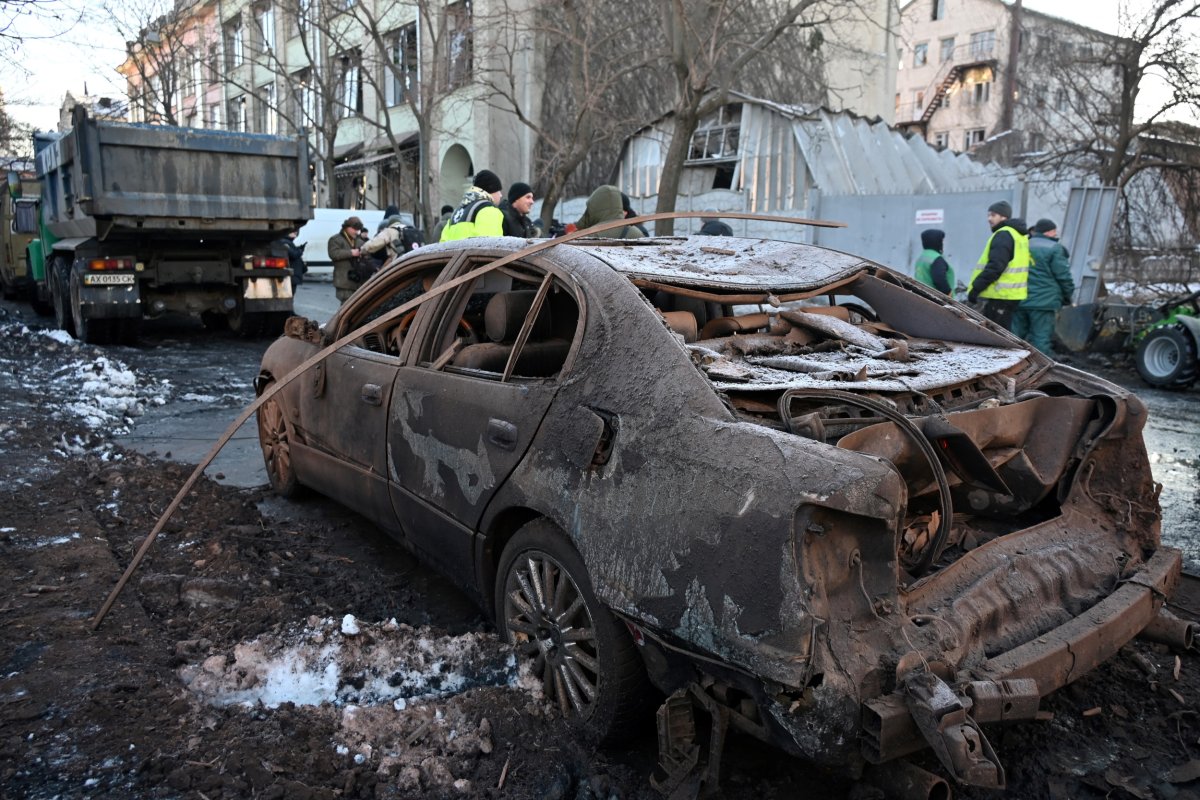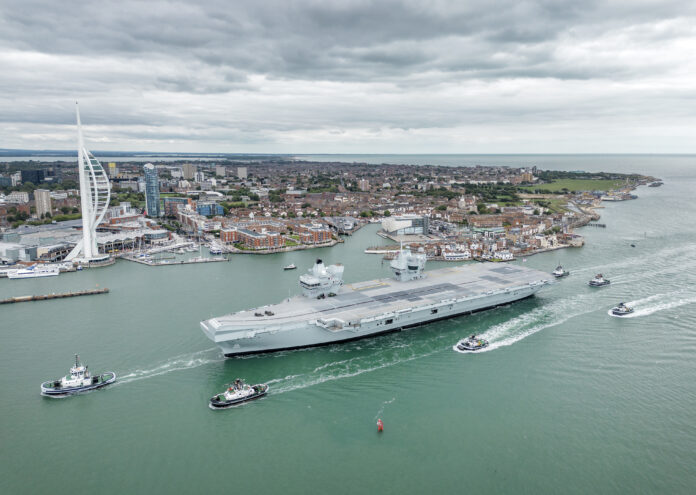British Army veteran Robert Clark issued a stern warning for the United Kingdom and Europe in a recent column published by The Telegraph.
Clark, who served in the military for 15 years, wrote that Great Britain needs to rethink its dependence on the United States to aid in any future defense against Russia on the European mainland.
In the column titled, “Britain must prepare for war. America won’t save us this time,” he argues that the era of “peace dividends” is over. Former U.S. President George H.W. Bush and former British Prime Minister Margaret Thatcher popularized the term after the dissolution of the Soviet Union, surmising that more public money is now available for other purposes when spending on defense is reduced.
In an emailed response to Newsweek on Sunday, Clark reiterated that improved military recruiting, in addition to defense spending, is a crucial issue for the United Kingdom to become more independent during this era of uncertainty.
“It’s been well documented that youth generations both in the U.S. and the U.K. are not as drawn to the sense of either national service or travel and adventure,” he said. “Therefore, the offer and the hooks (for recruitment) must better align with expectations of financial stability, career advancement and opportunities to move horizontally within an organization. Larger pay rises above other public sector jobs is a must.”
AFP/Getty Images
In addition to recruitment, Clark, who was deployed in both Iraq and Afghanistan, also emphasized the importance of retainment within the military in his response to Newsweek.
“Beyond improving the offer for volunteers, which is critical, political leaderships must begin thinking in terms of not just recruitment, but also retainment, which is just as important,” he said.
In his column, Clark states that Russia could attack either Moldova or Georgia once it has achieved a “victory of-sorts” in Ukraine. From there, Russia could move against Baltic states. He said current and future U.S. military interests will likely be focused on the Middle East and Pacific, leaving Europe to defend itself.
“As the center of gravity within Washington decision-making shifts decisively eastward to counter China in a longer-term struggle in the Indo-Pacific, the mood music coming out of Washington is that Europe should be able to look after its own security affairs, with minimal assistance from the US,” he wrote. “Given the scale difference between Russia and China, and that the collective economies of European NATO are well in excess of four times that of Russia’s, this is not an unreasonable position to take.”
He also pointed to recent statements by Rob Bauer, chair of the NATO Military Committee, who said that civilians in NATO countries should be prepared for the prospect of an all-out war with Russia in the next 20 years. On Thursday, NATO announced the launch of its largest military exercise in more than 35 years. Around 90,000 military personnel will participate in what an alliance official called “a simulated emerging conflict scenario.”
“NATO, because it is a security alliance, which all members share threat perceptions, acts far more in unison, and is often the alliance needed to not only bridge any gaps where nations don’t align, but is often the platform for those nations to come together in alignment and unison,” Clark told Newsweek.
Clark, Director of the Defense and Security Unit at Civitas, a London-based civil affairs think-tank, points to Russia’s ability to rearm and reindustrialize, “promising to devote between 30-40 percent of its economic output this year on its military machine.”
He told Newsweek that Western countries are ill-prepared to respond and should start planning to mobilize their economies and societies in preparation for future conflicts.
“Mobilization of societies (conscription) must also be planned for if the US and UK find themselves to prevent conflict through a failure of conventional military deterrence,” he said. “As can be seen in Ukraine, the enormous strain placed on Ukraine’s population for manpower. Nobody wants to see conscription, but systems must be now put in place to ensure that this can be achieved if needed.
“Currently they are not. Only in European nations which border Russia are there adequate models. These must be studied.”

AFP/Getty Images
In a Reuters report published on January 15, British Defense Minister Grant Shapps said 2024 is an “inflection point” as he gave a speech that laid out his view that the world will become more dangerous and require Britain and its allies to deal with “irrational” powers.
Shapps said the government was striving to increase defense spending to 2.5 percent of gross domestic product. He also urged other democratic nations to ramp up their own military spending.
Clark said the U.S. could improve its military posture in Europe by re-establishing military deterrence by both “denial and punishment.” He added the U.S. should increase its defense budget by 1-2 percent by “cutting social welfare programs and diverting a portion of this to the border situation with Mexico, thereby breaking the Congressional deadlock and showing Moscow that Washington is taking defense seriously again.”
He also noted to Newsweek that all eyes, worldwide, are on the upcoming U.S. presidential election.
“(Joe) Biden has remained steadfast on US NATO commitments, however, and (Donald) Trump has hinted at before withdrawing from the alliance, which would have catastrophic repercussions for European security as many member states consistently fail to reach even a base standard for defense spending,” Clark told Newsweek.
“Almost every European head of state is terrified of a Trump administration, whilst Biden, as chaotic and indecisive as he can be, has still maintained to support NATO and, fundamentally, Ukraine.”
Uncommon Knowledge
Newsweek is committed to challenging conventional wisdom and finding connections in the search for common ground.
Newsweek is committed to challenging conventional wisdom and finding connections in the search for common ground.


